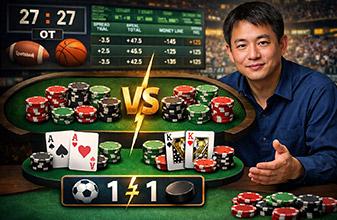Value of Comps

This article addresses only non-cash comps; the value is usually easy to determine in the case of free-money coupons, match plays, airfare reimbursement, etc.
Accurately figuring the value of non-cash comps is important for new players, who might otherwise fall into the trap of playing poor games just to obtain comps. For the typical new player, such thinking can backfire, turning advantage play into a losing proposition. When the expected losses from poor games that wouldn’t otherwise be played or the value of the time wasted on marginally profitable games exceed the actual value of the comps received, it isn’t a worthwhile expenditure of time and energy.
To be able to determine if this is occurring, you must be able to put an accurate value on comps. The retail price of the comped item(s) is not the actual value. The value of comps can be figured on the basis of what you would have been willing to pay for whatever you received if you would have used it at all if you had to pay for it in cash.
It might be argued that the retail price or “fair market value” is the actual value. However, if you wouldn’t be willing to pay the asking price for something indicates that the value to you is less than the price set by the seller. For example, let’s say dinner in the gourmet room costs $100 for those who don’t have a comp for it. But you might not have gone there if you didn't have the comp. You may not be willing to pay $100 plus tip for the meal. You might have gone to the coffee shop and eaten for only $10 plus tip. In this example, the gourmet room tip would be more than the entire meal in the coffee shop, so this comp actually has a negative value.
Let's say you would have been willing to spend a total of $50 including tip in the gourmet room, but would not spend $100. If you get a comp for it, the value is to you is $50; i.e., what you would be willing to pay for it in cash, not the $100 retail price.
More-accurate accounting comes from ignoring non-cash comp values entirely, and simply using "Actual Winnings minus Actual Expenses." The comp values just reduce the Actual Expenses. The Actual Expenses for a traveling player should also be reduced by what you would have had to spend for equivalent essential things if you were at home (such as dinner at home vs. the coffee shop while on the road). For example, if you spent $10 at the coffee shop, but a home-cooked meal would have cost $4, your Actual Expense is only $6 (10-4 = 6). But if you went to the gourmet room with your $100 comp and tipped $20, but the same nice steak at home would cost $10, your Actual Expense is $10 (20-10=10). The comp had a negative value.
Actual Expenses for most other trip expenses cannot be reduced by equivalent items you would have consumed at home; i.e., if you were home, you wouldn't need a hotel room. Your home mortgage payment or rent is the same whether or not you are at home every night, so there is no corresponding reduction in Actual Expenses for money spent on a hotel. If you have a comped room, the Actual Expense is zero -- but you must figure in any tips given to the maid, concierge, etc. Those are Actual Expenses you wouldn't have at home. Same with rental cars, taxis, etc. If you wouldn't have incurred this cost at home, it is an Actual Expense that must be subtracted from your winnings to obtain an accurate determination of your earnings.
Airfare is a little trickier. If you will eventually get a free trip from your use of a frequent flier program, the value of that free trip should be figured into, and reduce, the Actual Expense of the current trip, assuming you make enough trips to that destination. For example, let's say you fly on Southwest Airlines between Las Vegas and Reno. As of this writing, you need eight round trips to get a free round trip on Southwest. For the sake of simplicity, let's say each round trip is $200. The Actual Expense of each trip is thus reduced because you will get the ninth round trip free. You'll spend $1600 for eight trips, but the Actual Expense of airfare on a per trip basis is only $178, not $200 because the $1600 covers nine trips, not eight. This assumes that all the trips on that airline are for the purpose of casino play. If not, the accounting will vary depending on your individual situation. And it might be better to use the free passes for a more expensive trip that might not be related to casino play.
Don’t overlook the value of other frequent flier freebies. Many car rental companies give frequent flyer credits. Compute the value of those credits or partial credits against the difference in price between that company and a cheaper competitor that does not give credits. The accounting method must be refined to accurately reflect your own specific situation
For some people, there is “quality of life” intangible value that can be placed on comps. Eating better meals than you’d normally be willing to pay for, or staying in a better hotel room than you might choose if you had to pay for it out of pocket might have utility value for some. This is a personal decision that you must make, and recognize that such value is not actual dollar value.











Please log in or register to leave a comment